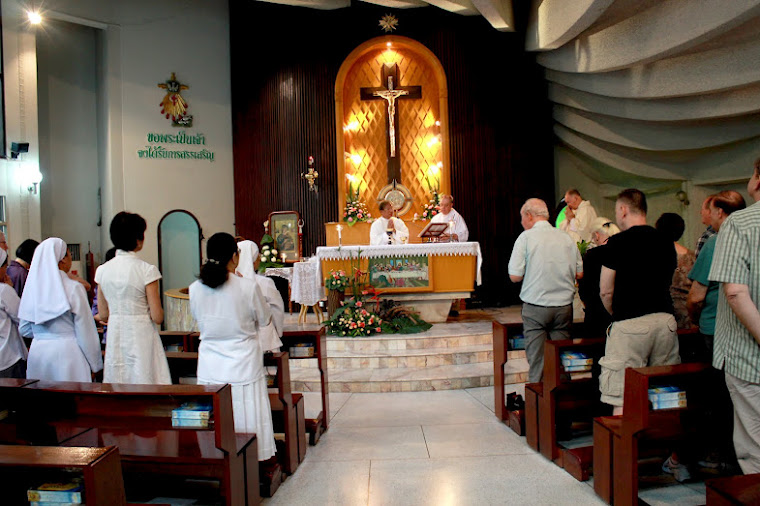 |
| A Thai Buddhist Funeral Ritual |
"Nineteen coffins of young victims, of last week's tragedy in Thailand, lined an entire wall of Wat Rat Samakee. A long white string, a Buddhist symbol of purity and protection, ran across their tops. Placed around each coffin were items to carry the young children into the afterlife: a Spiderman outfit, a plush kitty, juice boxes, grilled pork, and toy trucks, many of them."
Such is a graphic description given in a New York Times article (09-10-22). Tragedy, absurd tragedy, hits humanity far too often. What sense do we make of such senseless acts of human wantonness? Wantonness is the pure lack of any care for the other.
In the last week, while researching a quote, attributed to Margaret Mead (cultural anthropologist - 1901 to 1978), I discovered three principles arising out of anthropological research that uphold the core, human value of our caring for each other.
1) The plight of an ancient woman, who suffered a fall, showed that love and the will to live can push the human body to do remarkable things, even in the absence of modern medicine.
2) Times of crisis are moments of transition during which societies turn to shared meanings and experiences to make sense of what they are going thorough.
3) A small group of committed people can change society.
Human tragedy, human evil are not the end. In the midst of the pain, the loss, the suffering, there lie the reminder of the strength of the human spirit, the power of love and the possibility for humanity to grow and deepen in solidarity and kindness. As Henri Nouwen writes, based on St Paul, powerlessness is our power. Following the humble Christ, nourishing and sustaining power lies in our acknowledging our need for God and each other; in our acknowleding the total human narrative, the good and the bad, as being about us, not them. The subject of power within the human project is not ultimately dominated by the pursuits of the few, nor by the stories and successes of ill-gain and destruction. It is rather the power of the good and the great that wins the day.
The stirring English anthem, Jerusalem, uses the words of William Blake, the English poet and mystic of 200 years ago. Blake was sharing his vision that the new Jerusalem, the Holy City, will not be built in some far distant fanatasy. Rather it is being built right here and now, in the midst of human evil, not apart from it. This is so, as evil is conquered once and for all, through Christ risen. Evil gives way to the good of humanity, stirred up by a powerful God, working through our world and us, as we find ourselves. So we gladly sing with great gusto -
"Jerusalem, the Holy City, will be built here among those dark satanic mills".


No comments:
Post a Comment